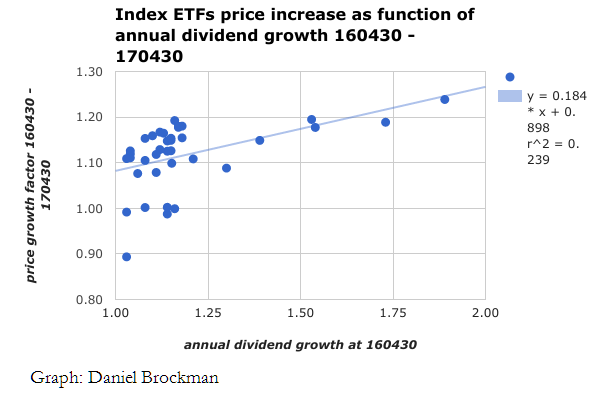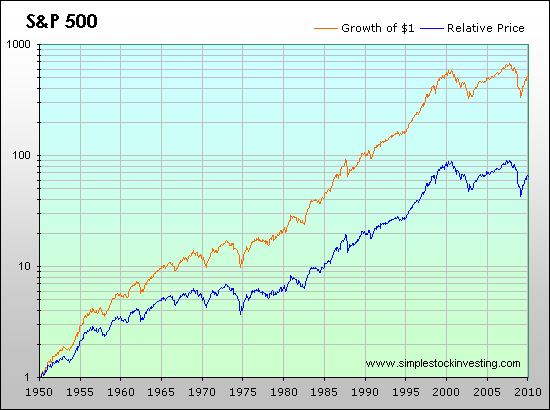Investing in real estate can be a lucrative venture, and one way to capitalize on this market is through dividend-paying stocks. If you’re looking to learn more about investing and want to explore the potential of high-dividend real estate investment trusts (REITs), then you’ve come to the right place.
In this article, we will delve into the world of VNQ dividend growth rate, providing you with valuable insights and strategies to maximize your investment returns.
Introduction to VNQ and its Dividend Yield
The Vanguard Real Estate ETF (VNQ) is an exchange-traded fund that provides investors with exposure to the real estate sector. It tracks the performance of the MSCI US Investable Market Real Estate 25/50 Index, which includes companies involved in real estate ownership, development, and management.
Dividend yield is a critical factor when evaluating investment options like VNQ. It represents the percentage return on investment that a company pays out to shareholders in dividends relative to its stock price. For investors seeking regular income, dividend yield serves as a key metric for assessing potential opportunities.
However, it’s important to consider other factors alongside dividend yield, such as company stability and financial health. A high dividend yield may be attractive but could indicate underlying risks or unsustainable payouts.
By understanding VNQ’s dividend yield and considering other relevant factors, investors can make informed decisions about investing in this real estate ETF or exploring alternative opportunities within the market.
Historical Dividend Yield Data for VNQ
To gain insights into the performance of VNQ’s dividend growth rate, it is crucial to analyze its historical dividend yield data over a significant period. By examining the past five years’ worth of data, investors can identify trends and patterns that may help inform their investment decisions.
Over the analyzed period, VNQ’s dividend yield has fluctuated, reflecting various market conditions and economic indicators. This data provides valuable information about the overall performance of VNQ and can be used as a guide for future predictions.
By studying these trends and patterns, investors can gain a clearer picture of what to expect in terms of future dividends.
Factors such as market conditions, economic indicators, and industry-specific developments play a role in influencing VNQ’s dividend growth rate. It is important to consider these external factors when analyzing the historical dividend yield data.
For example, during periods of economic expansion or stability, VNQ’s dividend yield may experience an upward trend. Conversely, during times of economic downturn or instability, the dividend yield may show a decline.
By closely examining the historical dividend yield data for VNQ, investors can better understand how external factors impact its performance. This analysis helps create a solid foundation for making informed investment decisions based on objective observations rather than relying solely on speculation or short-term fluctuations.
Factors Affecting VNQ’s Dividend Yield
The dividend yield of VNQ, the Vanguard Real Estate Index Fund, is influenced by two main factors: the performance of the real estate market and economic conditions/interest rates.
The real estate market’s performance plays a significant role in determining VNQ’s dividend yield. Factors such as supply and demand dynamics, rental rates, property values, and occupancy rates impact the profitability of real estate companies within VNQ’s portfolio.
Positive market conditions lead to higher dividends for investors, while economic downturns or rising interest rates can pose challenges for real estate companies and affect their ability to sustain or grow dividends.
Additionally, economic conditions and interest rates have a profound impact on VNQ’s dividend growth rate. During periods of economic expansion, real estate companies tend to perform well, resulting in higher dividends. Conversely, economic downturns or rising interest rates may hinder their ability to maintain or increase dividends.
To make informed investment decisions regarding VNQ, it is crucial to closely monitor these factors and stay informed about market trends. By analyzing indicators such as GDP growth rate, employment data, inflation levels, and central bank policies, investors can gain insights into potential fluctuations in VNQ’s dividend payments.
In conclusion, the performance of the real estate market and prevailing economic conditions/interest rates are key factors that influence VNQ’s dividend yield. Understanding these factors allows investors to anticipate changes in dividend payments and make more informed investment choices.
| Factors Affecting Dividend Yield |
|---|
| 1. Performance of the Real Estate Market |
Comparison of VNQ’s Dividend Yield with Other REITs
To assess the attractiveness of VNQ as an investment option, it is essential to compare its dividend yield with other REITs operating in the same industry. By evaluating the dividend yield range for VNQ relative to its peers, investors can determine if it offers a competitive return on investment.
Additionally, exploring how VNQ’s dividend yield compares to alternative investments outside the real estate sector provides insights into its risk-reward profile. This comprehensive analysis helps investors make informed decisions about including VNQ in their portfolios.
Additional Metrics Related to Dividend Yield
When analyzing dividend-paying stocks like VNQ, two important metrics to consider are the price-to-earnings ratio (P/E ratio) and total return.
The P/E ratio reflects market expectations for a company’s future earnings relative to its stock price. Comparing the P/E ratio to the dividend yield helps assess dividend sustainability and growth potential. A higher P/E ratio suggests strong dividend growth prospects, while a lower ratio may indicate undervaluation or uncertainty.
Total return combines capital appreciation and dividends received from an investment. While dividend yield focuses on income, total return provides a comprehensive measure of performance. Positive total return indicates profitability beyond dividends, while negative return signifies losses.
Tables displaying metrics like P/E ratio, dividend yield, and total return help compare investments and track performance over time. Incorporating these metrics allows investors to make informed decisions about selecting and managing dividend-focused portfolios.
Risks and Considerations with VNQ’s Dividend Yield
Market Volatility and its Effect on Dividends
Investing in real estate, like VNQ, carries risks due to market volatility. Fluctuations in the market can impact the financial stability of the real estate companies in VNQ’s portfolio, affecting its dividend growth rate. Investors must understand these risks to make informed decisions about their investments.
Regulatory Risks Specific to REITs
As a REIT, VNQ operates under specific regulations that govern its operations and tax treatment. Changes in these regulations can affect VNQ’s ability to generate consistent dividends and investor sentiment towards the fund. Staying informed about regulatory updates is essential for investors considering investment in VNQ.
Considering both market volatility and regulatory risks when analyzing VNQ’s dividend yield helps investors make informed decisions aligning with their goals. Thorough research, professional advice, and monitoring market conditions are necessary for mitigating risks while maximizing returns from investing in VNQ.
Investors Benefiting from VNQ’s Dividends
Investing in VNQ, the Vanguard Real Estate ETF, has proven lucrative for investors seeking dividend income and long-term growth. Two case studies illustrate the effectiveness of different approaches.
John, an experienced investor, strategically built a diversified portfolio with high-dividend REITs like VNQ. His long-term strategy generated consistent cash flow and steady wealth growth.
Sarah, an active trader, used VNQ to diversify her portfolio and capitalize on short-term price movements and dividends. This approach enhanced her overall returns.
These case studies demonstrate how investors can benefit from VNQ’s dividends by adopting different investment strategies. Whether it’s a focus on reliable cash flow or leveraging market volatility for short-term gains, VNQ offers opportunities for financial success.
Conclusion: Is Investing in VNQ Worth It?
Investing in VNQ, a high-dividend REIT, offers appealing advantages such as regular income and long-term growth potential. By diversifying across real estate sectors and capitalizing on attractive dividend yields, VNQ presents a worthwhile investment opportunity.
Analyzing historical data, understanding key factors affecting dividends, and considering risks associated with high-dividend REITs are vital when evaluating the worthiness of investing in VNQ. While no investment is without risk, staying informed about market trends and economic conditions can help investors make informed decisions.
[lyte id=’xy-wEkDLHrc’]






